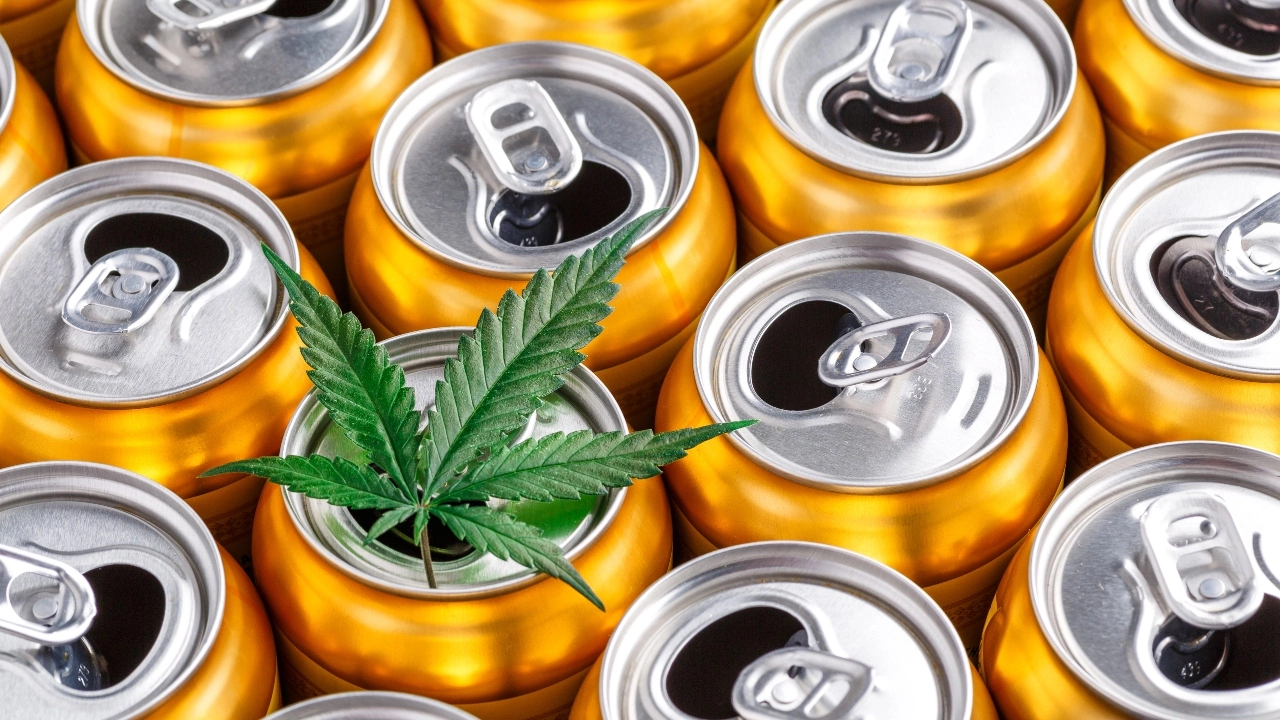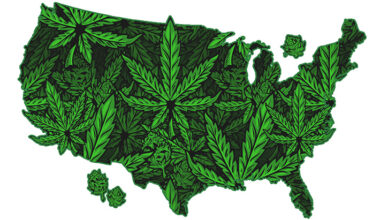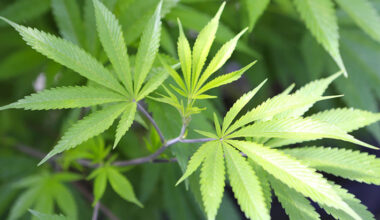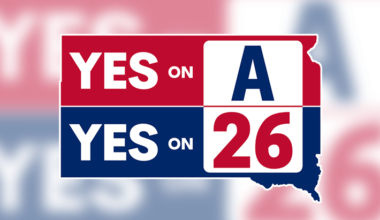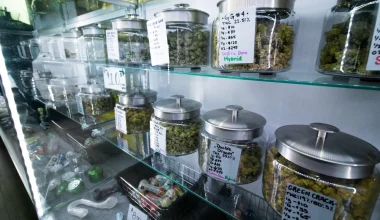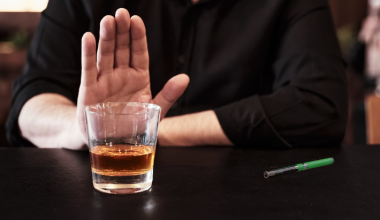If you want to party with Jazmin Hupp and her friends, you’ll have to leave the alcohol behind.
The 42-year-old gave up drinking booze and now sticks to THC-infused beverages.
“I’m looking to have fun without the consequences,” said Hupp, chief marketing officer for Marfa, Texas-based Jota Living, a maker of intoxicating THC hemp gummies and beverage additives.
And she’s far from alone.
For generations, women trying to unwind have been encouraged to grab a glass of wine. But as wellness trends grow in popularity among women in their 40s and older – the very the “Chardonnay mom” demographic that many cannabis operators are eager to lure – hemp THC drinks are filling that niche.
That in turn is creating marketing and growth opportunities for THC beverage companies – and they’re eager to take advantage.
THC beverages are doing what other cannabis products couldn’t
Women, particularly those older than 40, are driving the trend away from alcohol and toward THC-infused beverages, according to economist Beau Whitney, who closely tracks the cannabis sector.
“They’re replacing that glass of wine at the end of the night with a THC beverage,” he said. “It checks multiple boxes: fewer calories, no sugar and no hangover.”
Part of a broader cultural shift toward intentional and functional consumption, THC-infused beverages allow women to socialize without stepping away from the party or compromising their health, advocates say.
“I can raise a glass with everyone else and stay part of the moment – I don’t have to give up the social aspect,” said Hupp, the co-founder and former CEO of Women Grow, an advocacy group for female participation in the cannabis industry.
Taylor Fairman, co-owner and chief operating officer of Cedar Falls, Iowa-based Sky High Cannabis Co., a maker of intoxicating hemp beverages, said that alcohol doesn’t fit into the lifestyle of many of her businesses’ customers.
But thanks to THC beverages, women who never thought about using cannabis before are now considering it, she said.
“Beverages have been that great solution and bridge to introduce them to cannabis in general,” Fairman said.
A cultural turning point
As cannabis sales level out in established markets, the THC beverage sector is poised for exponential growth.
Now estimated at $1.1 billion to $1.3 billion in annual legal sales, the THC beverage market has the potential to reach $14.9 billion as more states embrace regulation and accessibility, according to Whitney.
And accessibility is a big reason why.
THC beverages are gaining traction in grocery stores and liquor outlets, where they’re positioned as direct competitors to alcohol, Whitney said.
“When positioned near alcohol in grocery stores, THC beverages have seen significant growth, capturing up to 10% of the intoxicating beverage market,” he said.
“For the first time, women can pick up a THC drink alongside their wine without having to visit a dispensary,” Whitney said.
Avoiding the “special trip” to the marijuana store is key, Fairman said.
“From age 30 to 50 they have a child in the car and think, ‘I’m not going to make a pitstop and just run into the dispensary.’”
But for women who like picking up THC beverages when they’re grocery shopping and are uncomfortable visiting a licensed cannabis retailer, delivery is a viable alternative, said Smrita Choubey, founder and CEO of New Jersey-based wellness brand Veda Warrior.
“Women are 60% of our customers,” said Choubey, who’s developing a THC beverage to be sold in the regulated industry.
“It’s not just the convenience of picking beverages up at the grocery store, but also the stigma. They don’t want to take kids to the dispensary, and they don’t want to be seen there. Women will send their husbands or rely on delivery.”
Hemp THC ban unlikely to halt women’s embrace of cannabis drinks
Looming over this is the federal hemp prohibition, scheduled to take effect next year.
While it’s unclear what a post-ban THC beverage landscape will look like, Whitney believes the sector could be wrecked.
Beverages account for just 0.9% of all sales in licensed marijuana stores, and a majority of those are high dose.
“People consuming hemp beverages are not going to go to the dispensaries because they weren’t in the first place,” he said.
“They’ll most likely go back to drinking alcohol or drinking nothing intoxicating. It’s wiping out a product line that has a very specific consumer.”
As regulations surrounding intoxicating hemp products evolve, Fairman doesn’t think the trend toward functional beverages will stop.
“Some alcohol companies are fighting against it, and some are fighting for it,” she said. “More of the population is wanting to be intentional and wellness and functional based.”
Subscribe to the MJBiz Factbook
Exclusive industry data and analysis to help you make informed business decisions and avoid costly missteps. All the facts, none of the hype.
What you will get:
- Monthly and quarterly updates, with new data & insights
- Financial forecasts + capital investment trends
- State-by-state guide to regulations, taxes & market opportunities
- Annual survey of cannabis businesses
- Consumer insights
- And more!
The wellness connection
Despite the benefits, many women still struggle with the stigma of choosing THC over wine, according to Hupp.
But with social media restrictions and other limitations on cannabis marketing, women are introducing THC beverages to their friends at parties and gatherings.
“It’s an old school, word-of-mouth spread,” she said said. “Women are tipping off their girlfriends and bringing hemp beverages to parties instead of wine.”
The appeal of THC beverages goes beyond social settings.
For women navigating perimenopause and menopause, the drinks offer unique benefits. Hormonal shifts during this stage of life can exacerbate stress, anxiety and sleep issues – challenges that alcohol often worsens.
Mary Bernuth, a psychotherapist and co-founder of the cannabis beverage maker Pharos Brands, highlights the emotional and physical advantages.
“A gentle-potency THC beverage allows women to reset their nervous system, relax enough to make healthier choices and stay present,” she said.
It’s also safer to use THC products than alcohol when taking medications for other conditions, Bernuth said.
“When you combine all of the challenges of a professional life with parenting and supporting your aging parents, there is often a likelihood of so much stress that it can potentially trigger depressive symptoms,” Bernuth said.
“One of the things a gentle potency THC beverage offers them is to reset their psychological, emotional playing field. It lets them relax enough to make healthier choices.”
Margaret Jackson can be reached at margaret.jackson@mjbizdaily.com.
Medical Disclaimer:
The information provided in these blog posts is intended for general informational and educational purposes only. It is not a substitute for professional medical advice, diagnosis, or treatment. Always seek the advice of your physician or other qualified healthcare provider with any questions you may have regarding a medical condition. The use of any information provided in these blog posts is solely at your own risk. The authors and the website do not recommend or endorse any specific products, treatments, or procedures mentioned. Reliance on any information in these blog posts is solely at your own discretion.
